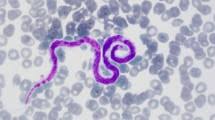Parasitology Lab Practical #1
1/38
There's no tags or description
Looks like no tags are added yet.
Name | Mastery | Learn | Test | Matching | Spaced | Call with Kai |
|---|
No analytics yet
Send a link to your students to track their progress
39 Terms
Trichuris vulpis
Roundworm (Whipworm) eggs
Humans and primates
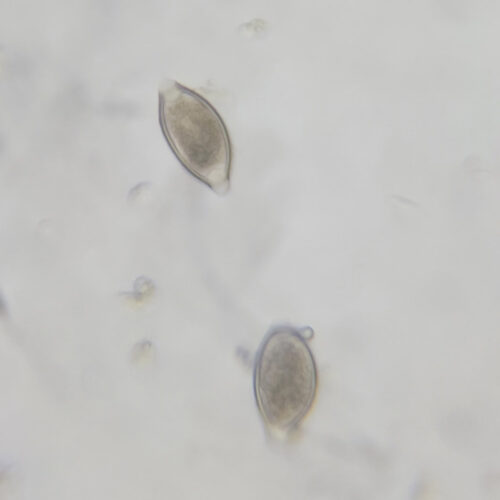
Trichuris Trichuria adult
Adult Whipworm
Humans and primates
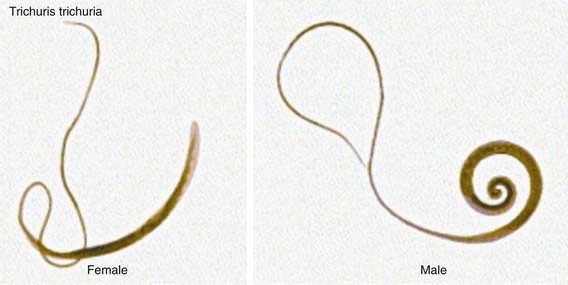
Acanthocephala ova
Thorny headed worm eggs
Fish, aquatic birds, certain mammals
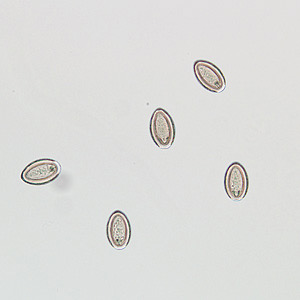
Adult Acanthocephala
Adult thorny headed worm
Fish, aquatic birds, certain mammals
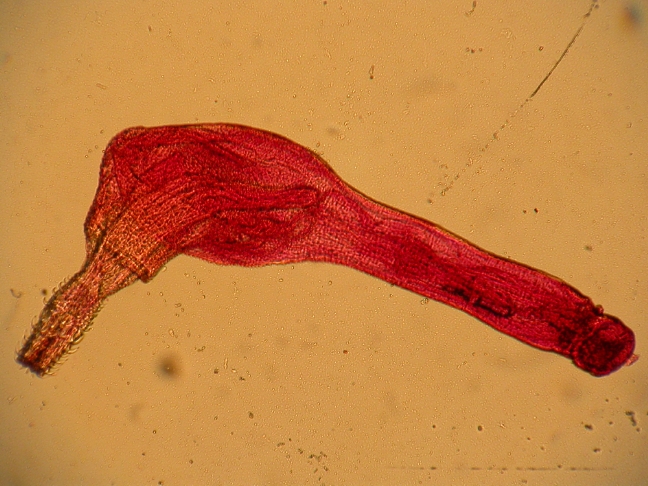
Toxascaris Leonina ova
A type of roundworm egg that can be found in dogs and cats NOT ZOONOTIC
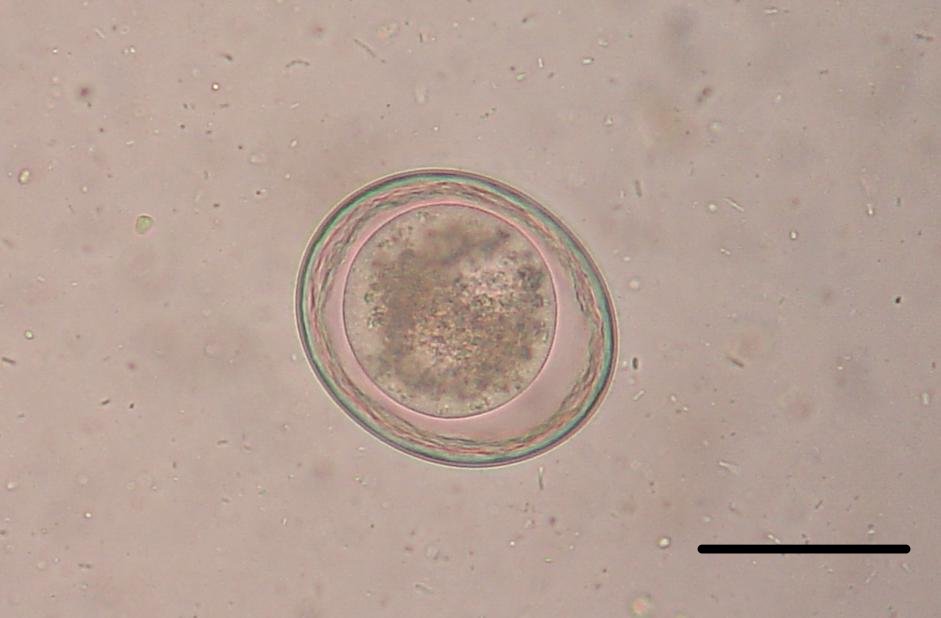
Toxocara ova
Type of roundworm parasite egg most commonly found in dogs and cats can be zoonotic
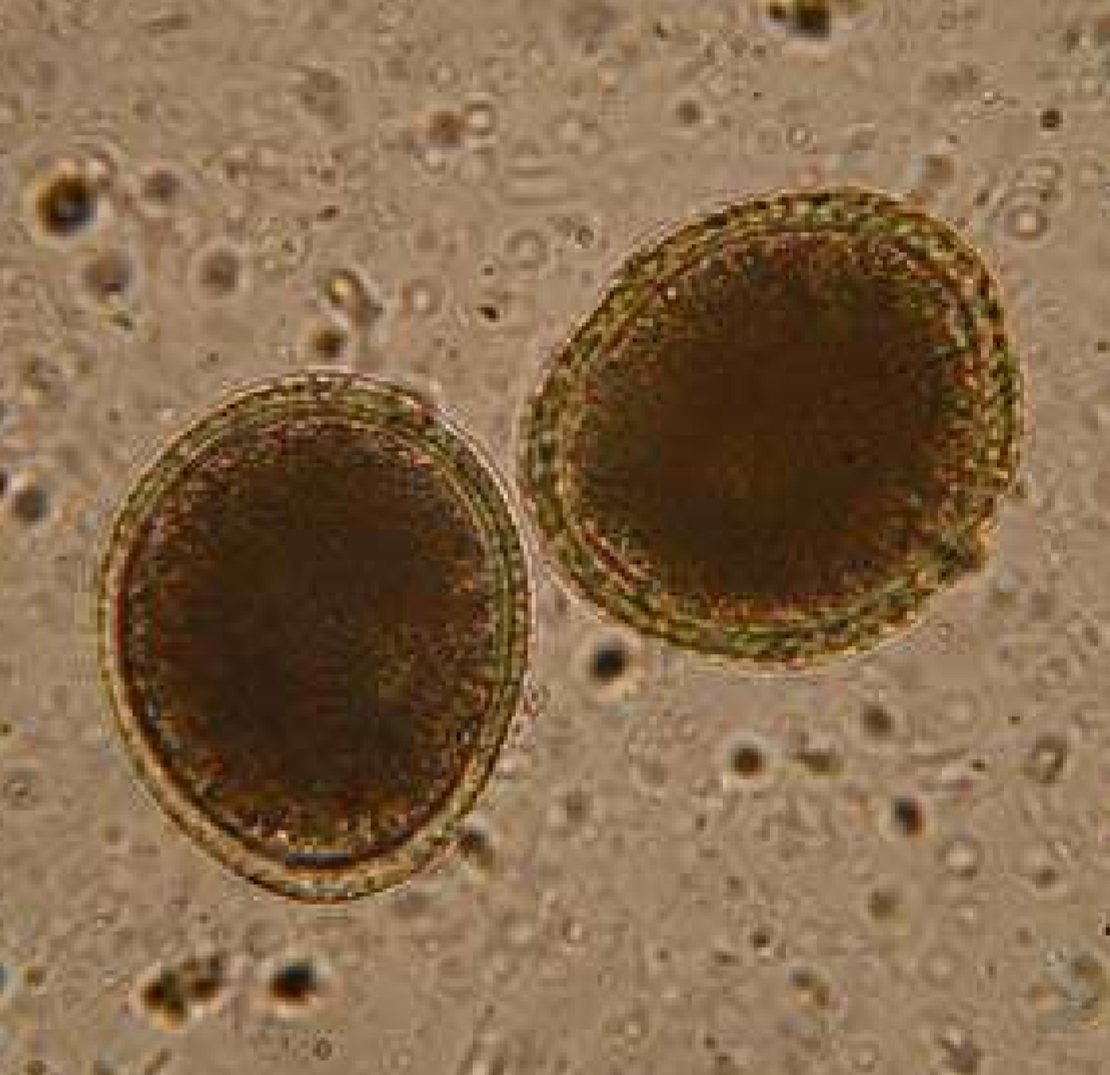
Toxocara adult
Round worm adult
Dogs, cats, humans
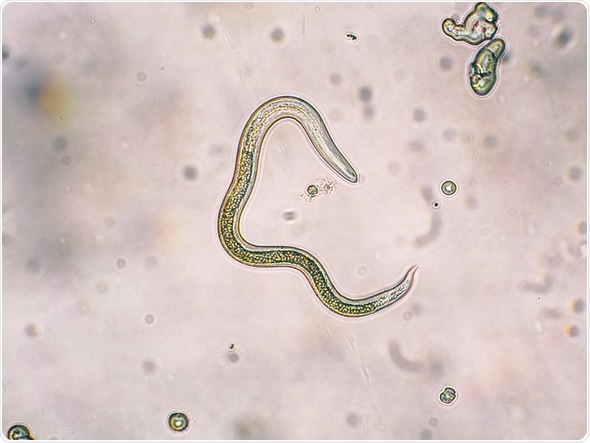
Strongyloides Larva (wet mount)
A type of roundworm larva that can infect cats, horses, rats, etc.
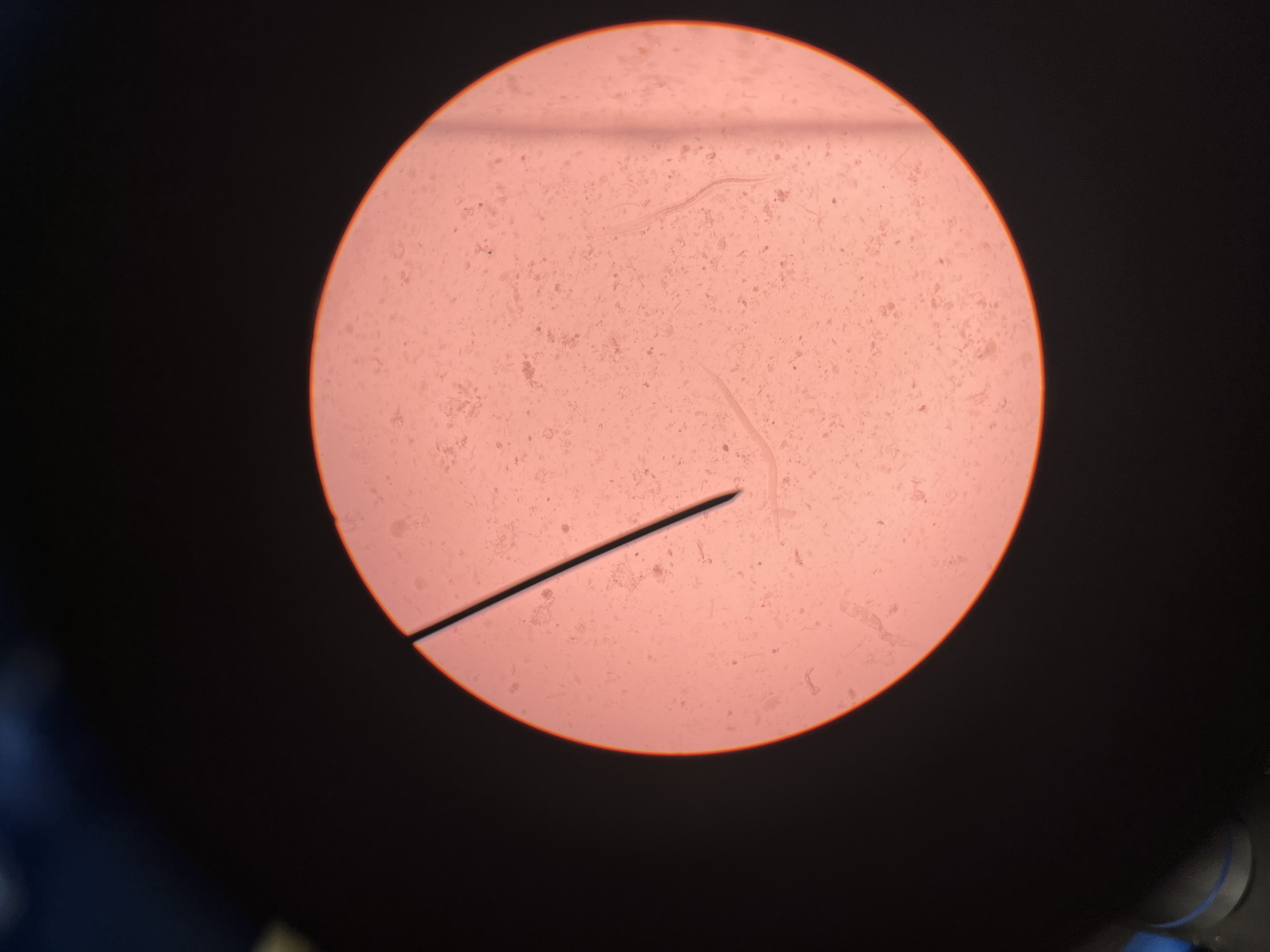
Ascaris ova
A type of roundworm egg that can be spread through feces, contaminated food, soil, water, etc.
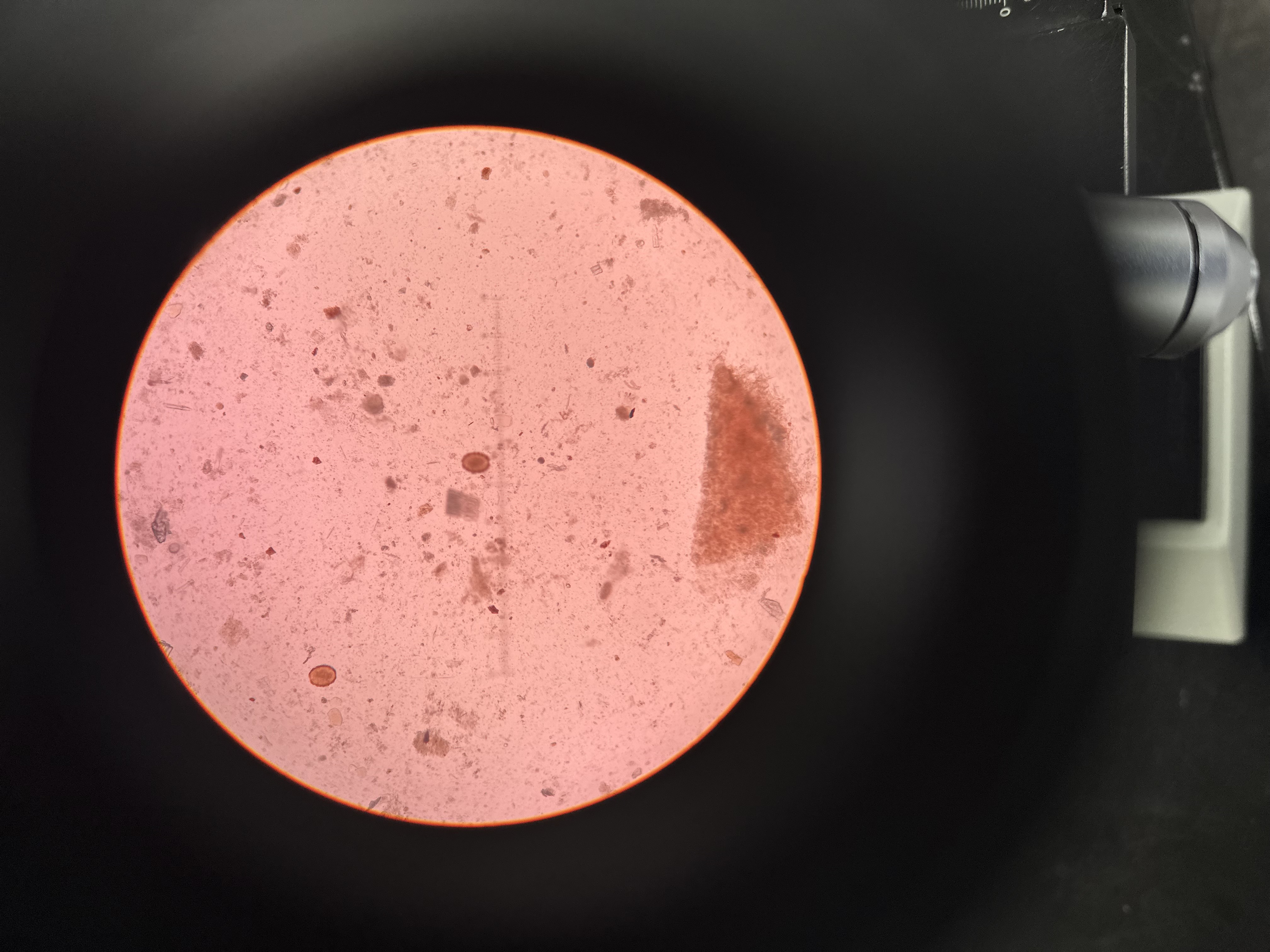
Trichinella (muscle tissue)
A type of roundworm that can be zoonotic through the consumption of raw meat.
Pigs, horses, etc.
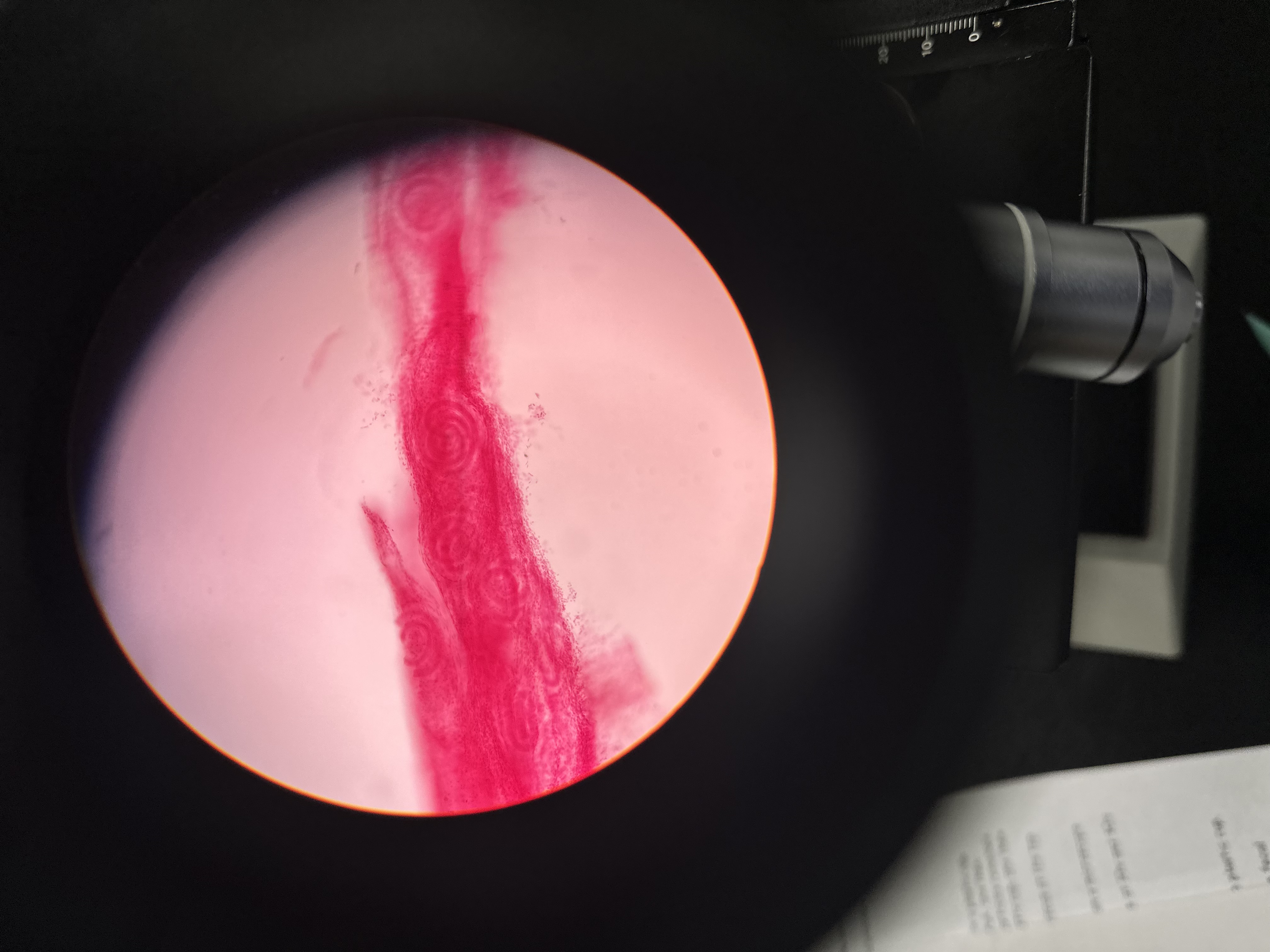
Baylisascaris Procyonis ova
Type of raccoon roundworm eggs
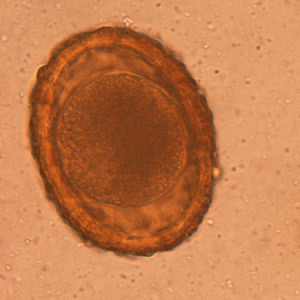
Haemonchus contortus ova/barber’s pole
Blood-feeding parasite eggs
Primary hosts are sheep and goats
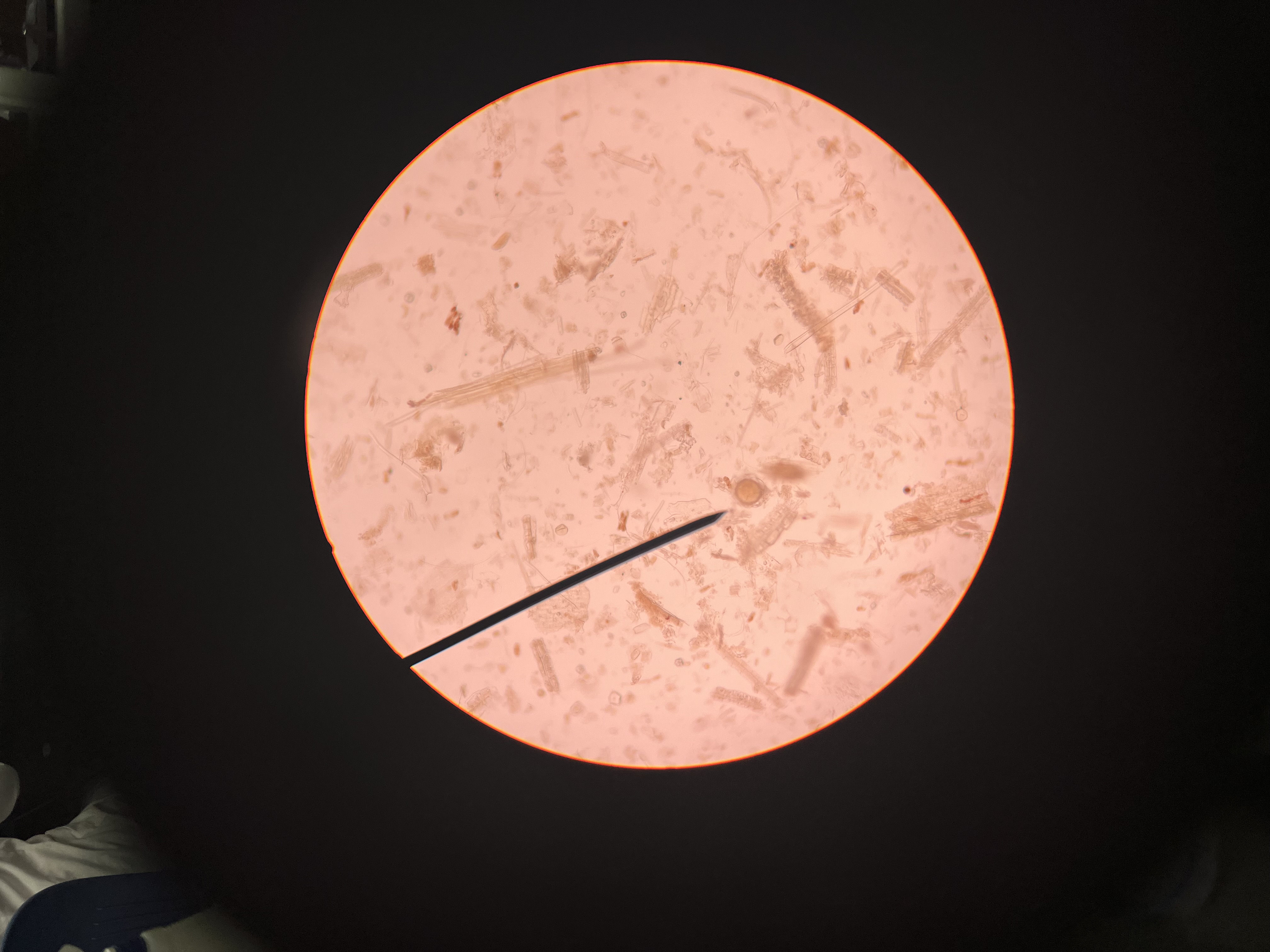
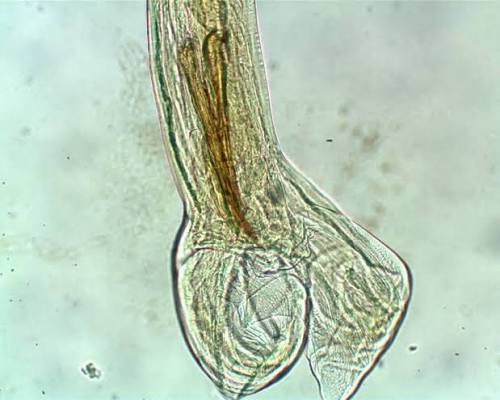
Haemonchus contortus worm/barber’s pole
Blood-feeding parasite adult
Primary hosts are sheep and goats
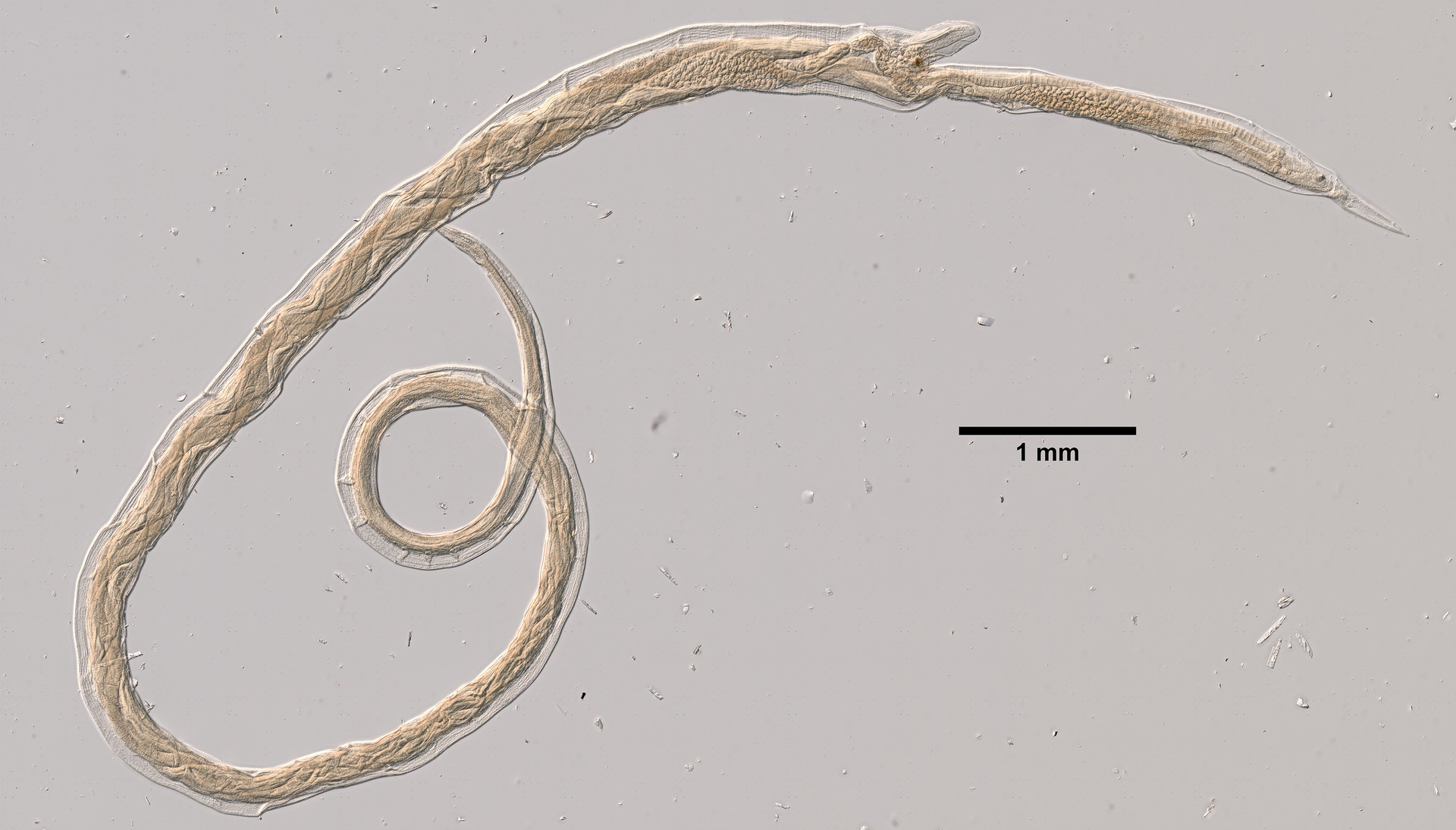
Ancylostoma ova
A type of hookworm egg that is zoonotic
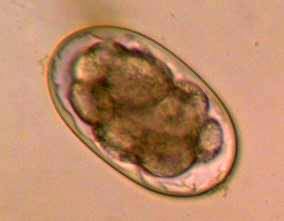
Anclyostoma caninum Adult
An adult hookworm that mainly effects dogs can be zoonotic
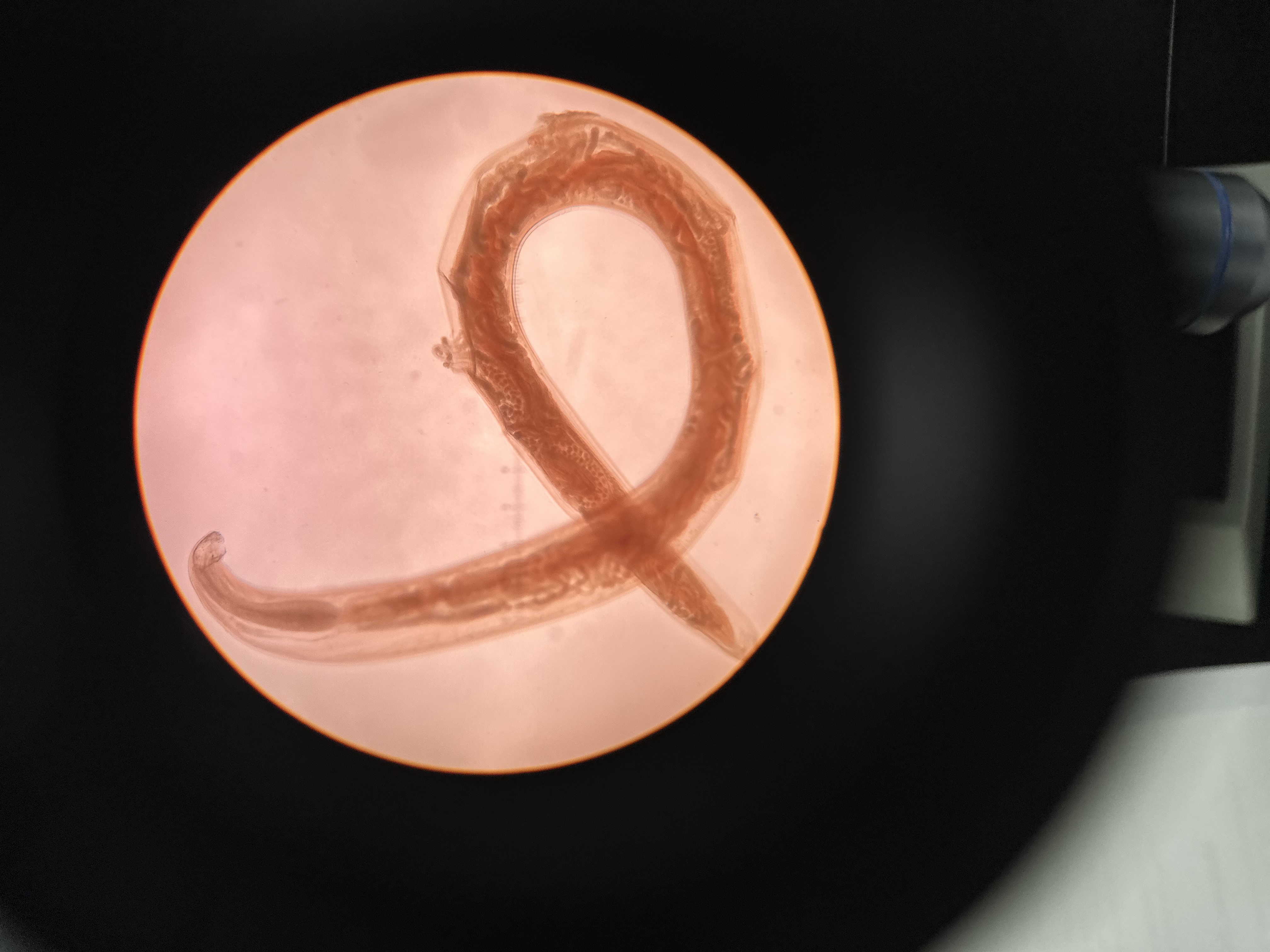
Ocular lenses
Allows focus to your eyes allowing you to see (10x) for parasites
Arm and base
The arm is what connects the head to the base, providing structural support and a handle for carrying the instrument. The bass supports the entire microscope
Turrent/nosepiece
Allows you to adjust the lenses
Scanning, low power, high power, oil immersion
Lenses that allow you to see the specimen. Usually low power for parasites (10x; 100x magnification)
Mechanical stage
What the specimen lies on while on the microscope
Stage clips
Used to securely hold the specimen in place on the stage
Condenser/Condenser adjustment knob
Condenses light from the power source of the microscope; the knob helps you change the contrast of the light
Aperture diaphragm ( iris diaphragm )
Used for controlling the amount of light and angle of light passing through the specimen
Aperture diaphragm lever
Used for adjusting the aperture size to control things such as the amount of light and depth of field
Coarse/Fine focus knobs
Controls the height of stage; fine helps with focus
Centrifuge fecal rpm
5 minutes (1300-1500 rpm)
Centrifuge blood rpm
10 minutes (2,500-3,000 rpm)
Specific gravity definition
Measures the density of a substance compared to the density of water
Sodium nitrate measurement
1.2ml
Zinc nitrate measurement
1.18ml
Sheather’s/Sugar measurement
1.27ml
Steps to simple flotation
Gram of feces + ¼ of solution into a cup
Stir and strain into second cup
Pour solution into labeled conical tube with meniscus
Put cover slip on and wait 20mins
Put on slide; ready to view
Centrifuge flotation steps
Fill labeled conical tube with stained feces solution to the 14ml line
Spin in centrifuge fecal setting
Create a meniscus and put a cover slip on for 10mins
Slide is now ready for viewing
Direct Heartworm steps
Clean slide, invert tube
Collect blood sample and put drop on slide
Put cover slip on slide and scan at 10x
Modified Knotts steps
Label conical tube put 1ml of blood and 9ml of formalin in it
Gently invert the tube and put it into the centrifuge at blood setting 10mins
Pour out excess fluid and and a drop of methylene
Tap and get sediment at the bottom to put on cover slip
Scan 10x
Plasma
A serum that contains platelets and blood clotting factors
With EDTA lavender top
Serum
The fluid portion of blood
Red/Tiger tops are serum separator tubes
Heartworm (Dirofilaria immitis)
Pathogenic
Many in the blood
Stationary
Straight body tail, tapered
307-322 um
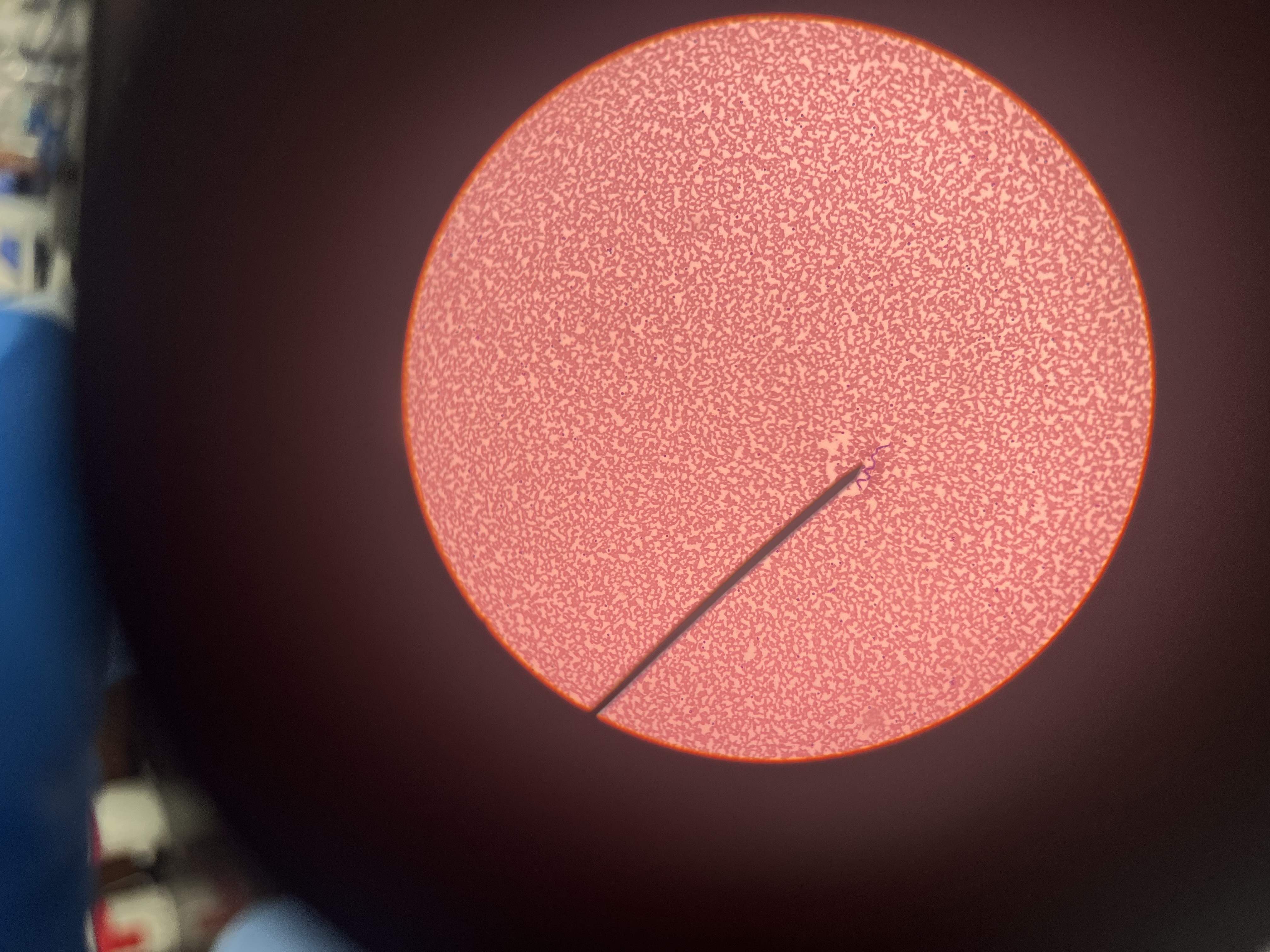
Ancanthocheilonema reconditum
Non-pathogenic
Few in blood
Progressive
Curved body, blunt head, button hook tail
250-288 um
